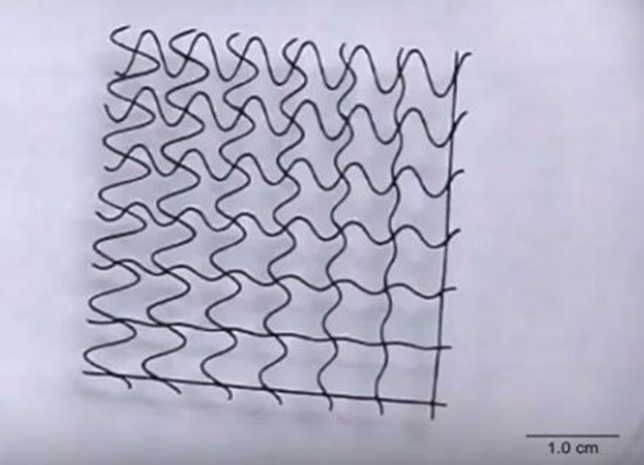Research
University Students Make Soft-Mesh Robots Controlled by Magnetics
- By Dian Schaffhauser
- 03/13/19
North Carolina State University researchers have created 3D-printed soft mesh "robots" that can contract, reshape and grab and release small objects (such as a drop of water or a tiny foil ball) while floating on the water surface. Controlled by magnetic fields, the soft structures could be used to replicate creatures living on water, such as water skeeters, or find use in biomedicine as tissue scaffolds for cell cultures. They resemble pliable fragments of artistic chain-link.

In a paper published in Advanced Materials Technologies, the team described how they produced a "toothpaste"-like ink from silicone microbeads, called "homocomposite silicone capillary ink," that could be shaped into mesh-like patterns in a 3D printer and cured with heat. The silicone has iron particles embedded in it, allowing the structures to stretch or collapse with the application of magnetic fields, as demonstrated in a short video.
The project, called an "early stage proof-of-concept" in a university article, was funded by grants from the National Science Foundation. It was intended to serve as "training grounds" for students to participate in hands-on research in nanoscale engineering, according to grant applications.
The paper discussing the project is openly available on the Advanced Materials Technologies website.
About the Author
Dian Schaffhauser is a former senior contributing editor for 1105 Media's education publications THE Journal, Campus Technology and Spaces4Learning.

